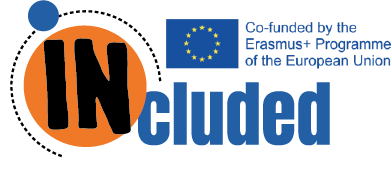While the benefit of CSE has been widely demonstrated, according to UNESCO there is limited information on the impact of CSE curricula on already marginalised groups, including young people with physical and/or cognitive disabilities, and suitable and effective methodologies for this target group should be further investigated. In this context, the use of creative methods such as role-playing and theatre games have proven to be effective in educating young people and even more with young people with intellectual disabilities since according to researchers methods that are based on modeling, role-play, rehearsal, and practice skills can be quite useful for improving the skills of individuals with intellectual disabilities.
The outbreak of COVID-19 impacted the sexual education of (intellectually disabled) teenagers in a variety of ways, making this project particularly timely: on one hand, by closing schools, sexuality education is receiving less or no attention throughout the world. If there is an opportunity to take classes online at home, sexual education is often not a priority. (Rutgers, April 2020) Additionally, according to recent reports from Europol and Unicef, the increased use of the internet due to the pandemic has heightened the risk of online sexual harassment of children, since spending more time online may increase their likelihood to come into contact with online predators and therefore they should be educated to recognise and prevent this risk. On the other hand, as COVID-19 forced schools across the country to abruptly close, many parents took on an additional role as teachers. As families spend more time together at home, parents have a chance to connect with their kids and delve into sexual health in a meaningful and more intentional way and should be supported to do so.
To these challenges intends to respond the INCLUDE project which will design, implement and evaluate:
- an inclusive sexual education curriculum for high-school students adopting the Universal design for learning (UDL) approach: a cognitive framework that focuses on removing barriers within learning environments by modifying curriculum, concepts, materials, and environments for all learners and abilities through the use of creative options and drama-based techniques.
- a training for teachers, to upskill them providing the necessary competences to implement the programme
- drama-based resources and approach to adopt a whole-school approach in relation to sexual education, including the active involvement of parents/guardians/carers of students with disabilities.

